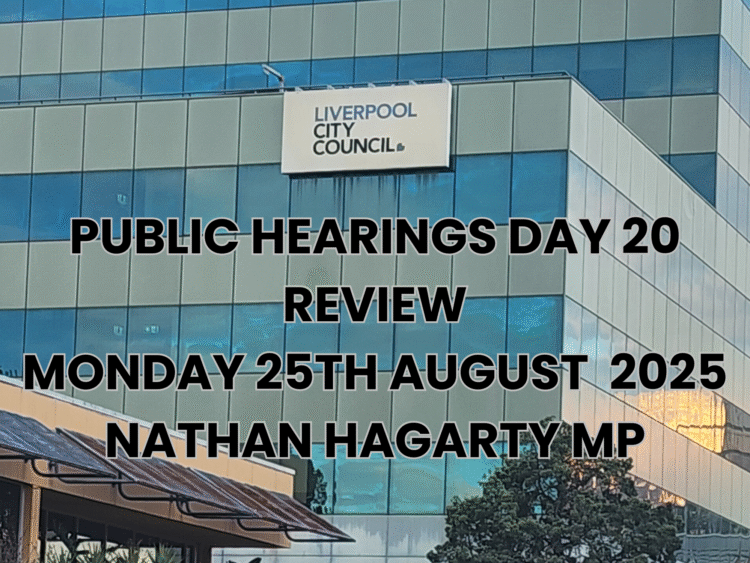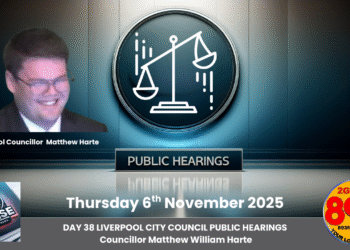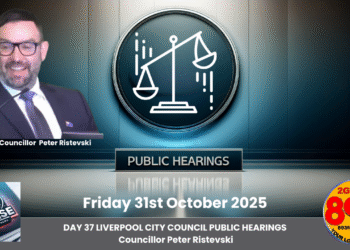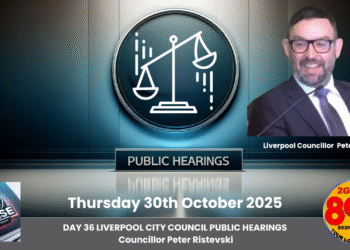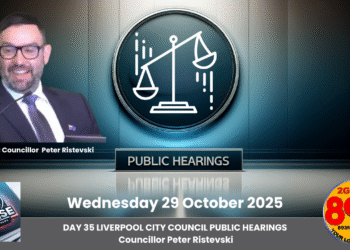Nathan Hagarty’s Testimony: Political Background and Council Involvement
Mr Nathan Hagarty, affirmed for the session,State Member for Leppington, elected in March 2023, and a member of the Australian Labor Party (ALP). He detailed his prior involvement with Liverpool City Council, having been elected as a councillor for the North Ward in 2016 under Mayor Wendy Waller (Labor). He remained on the council until December 2023, overlapping with his state parliamentary role from March to December 2023.
In the 2016 election, the council composition included Mayor Waller, four Labor councillors, four Liberal councillors, and two independents from the Liverpool Community Independents Team, namely Councillors Matthew Harte and Karress Rhodes. By the 2021 election, Mr Hagarty ran unsuccessfully for mayor as the Labor candidate, with Ned Mannoun (Liberal) elected instead. Mr Hagarty was re-elected as a councillor for North Ward. The 2021 council composition mirrored 2016’s, except for the mayoral change, with Councillor Rhodes later resigning from the Independents Team to become a true independent during that term.
Focus on 600 Cowpasture Road Property Purchase and Depot Strategy
A significant portion of Mr Hagarty’s testimony centered on the proposed purchase of property at 600 Cowpasture Road, initially raised by Mayor Mannoun in a WhatsApp group chat with the suggestion, “Anyone want to buy a depot?” This proposal tied into broader council discussions on depot relocation strategies, driven by regional growth, the construction of Western Sydney International Airport, and the development of Bradfield city within the Local Government Area (LGA).
Mr Hagarty referenced historical council reports on depot needs, culminating in a “depot strategy” to reduce reliance on the long-standing Rose Street depot, enhance the western depot at Devonshire Avenue, and eventually acquire a third site west of the Aerotropolis near the airport. A specific document, the Operations Centre Masterplan dated 7 November 2018, was presented, outlining a transition strategy prepared by consultants. It detailed a phased move from Rose Street to Devonshire Road (within 5-10 years) and ultimately to an unidentified site near Western Sydney Airport (within 10-20 years), with masterplans for seven stages of transition covering accommodation layout and functionality.
The lack of transparency in these early discussions excludes ratepayers from understanding or influencing how their rates are spent on critical infrastructure like depots, which are essential for council operations and service delivery. Without public disclosure or council meeting records of the rationale behind targeting Cowpasture Road, there is a perception of secrecy or favoritism in property dealings, further eroding trust. Ratepayers, already burdened by rising costs, ratepayers might be frustrated to learn that their contributions might not be yielding optimal outcomes due to such informal and unaccountable decision-making practices. This issue exemplifies a broader concern within Liverpool City Council: a disconnect between the council’s fiduciary duty and its operational conduct, leaving ratepayers questioning whether they are truly getting good value for their money.
The testimony highlighted the strategic importance of depot relocation to support growth in areas like Austral on the western fringe of the LGA, reflecting long-term planning for infrastructure to match the region’s development. The discussion on Cowpasture Road suggests ongoing efforts to identify suitable properties aligning with this strategy, though the transcript cuts off before further details on the purchase decision are provided. (We expect this has been redacted from public record)
Broader Implications
Mr Hagarty’s evidence underscores the complex interplay of political affiliations and strategic infrastructure planning within Liverpool City Council. His dual role as a state MP and councillor during 2023 raises questions and revealed a council often split along ideological lines. The depot acquisition strategy prompt scrutiny over transparency in property acquisitions and the influence of key figures like the mayor in driving such decisions.
The hearing adjourned with further examination expected in upcoming sessions, as the inquiry continues to probe governance, decision-making processes, and operational challenges within Liverpool City Council. Mr Hagarty’s testimony provides critical context on how political and infrastructural priorities intersect, shaping the council’s response to a rapidly evolving local landscape.









